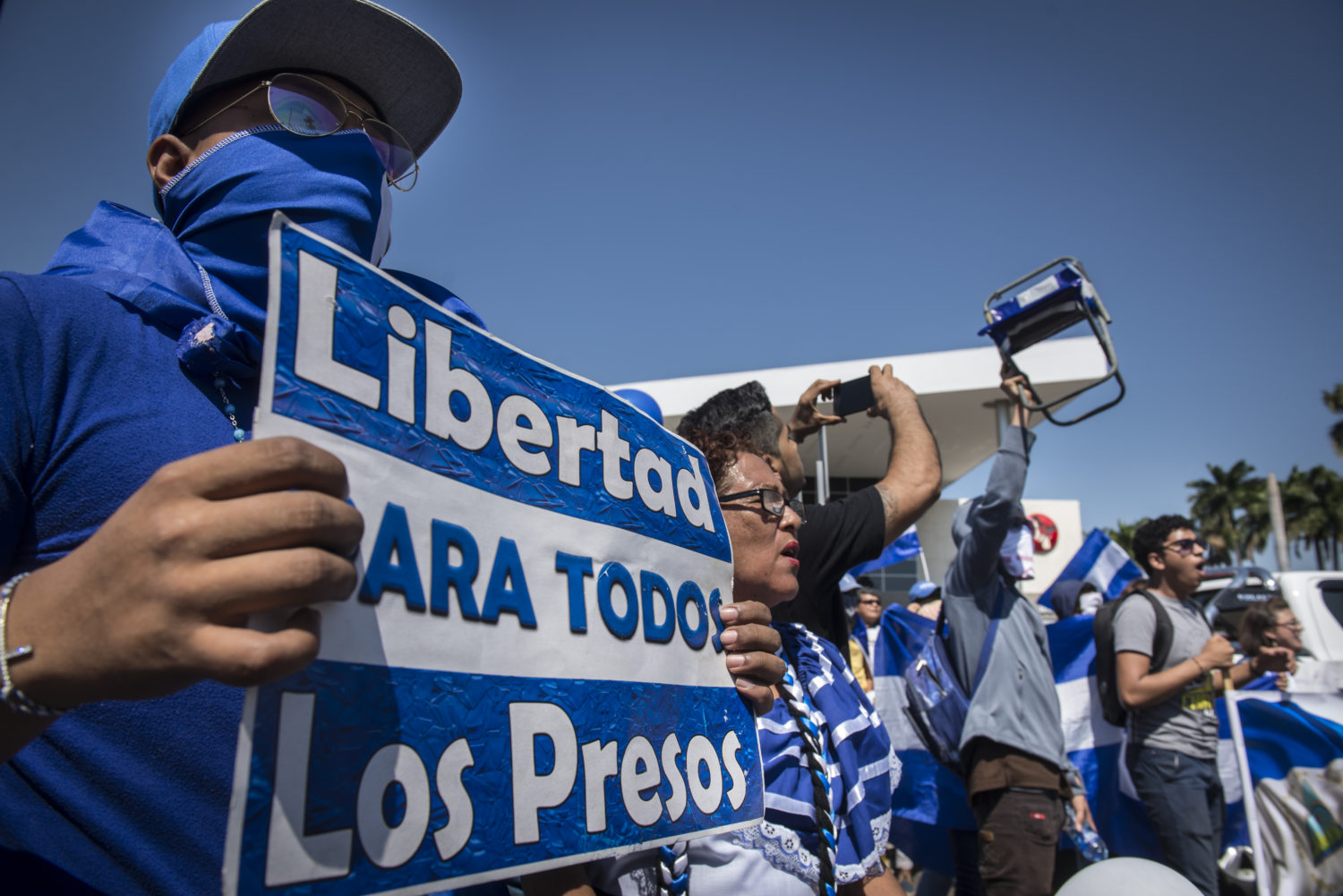High Commissioner Michelle Bachelet updates the Human Rights Council on the situation in Nicaragua
Geneva, February 27th, 2020. During the 43rd period of sessions of the United Nations Human Rights Council, High Commissioner for Human Rights Michelle Bachelet updated the Member States on the […]

Geneva, February 27th, 2020. During the 43rd period of sessions of the United Nations Human Rights Council, High Commissioner for Human Rights Michelle Bachelet updated the Member States on the situation in Nicaragua, which has suffered a human rights crisis since April 2018, assuring them that repression continues from various fronts.
“Since the presentation of my last report in September 2019, human rights violations have not ceased, within the framework of an extremely complex political and social context,” the High Commissioner stated.
The High Commissioner highlighted the lack of guarantees for the safe return of more than 98,000 Nicaraguans who have left the country; the persistence of threats and intimidation against victims’ organizations and their lawyers; violations of the right to peaceful protest and the rights to freedom of opinion and expression; threats and physical attacks against journalists; arbitrary detentions and the situation of 61 political prisoners; and the recent homicides in rural communities in northern Nicaragua and in indigenous communities in the Caribbean region.
The High Commissioner also noted with regret that nine civil society organizations remain without legal status, the government having cancelled their registrations in December 2018.
In her oral report, the High Commissioner urged the Government of Nicaragua to release those who remain deprived of liberty for reasons related to protests, to guarantee safe conditions for human rights defenders to carry out their work freely and to take all the necessary measures to guarantee the free exercise of journalism.
Finally, the High Commissioner encouraged the Government to implement the recommendations made by her Office and other international and regional mechanisms with urgency. In particular, she reiterated the recommendation to allow the OHCHR to revive its country mission in Nicaragua.
This update concludes the High Commissioner’s mandate for Nicaragua, which had been granted for only one year on March 21st, 2019 by the Human Rights Council under resolution (A / HRC / 40 / L.8) “Promotion and protection of human rights in Nicaragua.”
The Nicaraguan delegation that traveled to Geneva to participate in the 43rd period of sessions of the UN Human Rights Council has held meetings with several diplomatic missions, urging the adoption of a new resolution on Nicaragua to renew the mandate of the High Commissioner.
This delegation is composed of students, former political prisoners, human rights defenders and members of the Nicaraguan Center for Human Rights (CENIDH), Nicaragua Never Again Collective, Association of Mothers of April (AMA) and the Articulation of Social Movements (AMS).


This morning in Geneva, Nicaraguans Vilma Núñez, Dilon Zeledón Ramos and Lizeth Dávila held a conversation on the human rights situation in Nicaragua with First Vice President of the Inter-American Commission on Human Rights Joel Hernández and United Nations Special Rapporteur on the Right to Freedom of Peaceful Assembly and Association Clément Voulé,. The event was organized by the Institute on Race, Equality and Human Rights (Race and Equality), the Center for Justice and International Law (CEJIL) and Civicus, and co-sponsored by the International Federation of Human Rights and the Initiative Mesoamerican Defenders (IM-Defensoras).
Rapporteur Clément Voulé said he had “strong reasons to believe that alarming restrictions to the right of peaceful assembly continue through the violent repression of peaceful protest and an array of measures preventing peaceful assemblies from taking place.” He also reiterated to the Nicaraguan state his willingness to visit the country and to “provide technical support for the country to adhere to the rule of law, democracy and the protection of human rights.”
IACHR Vice President Joel Hernández regretted that a vicious circle of human rights violations is intensifying due to the lack of judicial independence. “Measures for reparation, justice and non-repetition must be given immediately to begin to emerge from this crisis, otherwise we will continue immersed in this vicious circle,” he stated.
Participants also called on permanent missions in Geneva and civil society organizations to keep the theme of Nicaragua on the agenda of the Human Rights Council.

